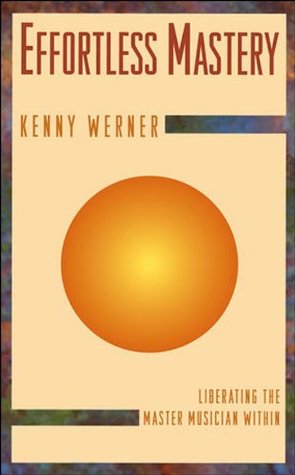More on this book
Kindle Notes & Highlights
Once new theory is mastered, it is recited with the same dreary predictability as the old. If you are inhibited playing with the toys you have now, you will not play differently with new toys.
True musical depth is not about better playing, but about more "organic" playing.
When a musician superficially craves security in the level of his playing, what is he really after? It is said that one drop of ecstasy tasted from the self, the God inside us, renders all other pursuits insignificant. At that point, the seeker has found everything he has sought. Every song is either praise or an entreatment for more connection with the beloved.
Surrender is the key, and the first thing to surrender is one of your most prized possessions: YOUR OBSESSIVE NEED TO SOUND GOOD!
When I ask people in my clinics to contemplate this, 99% of them realize that they played better when it didn’t matter so much. Think about it. What does that mean? When you don’t try as hard to be good, you play better.
"The easiest way to do art is to dispense with success and failure altogether and just get on with it," says Stephen Nachmanovich in his book, Free Play.1 A person who is not afraid to die, knows how to live. A person who is not afraid to fail, succeeds. And a person who is not afraid to sound terrible may sound great. It isn’t guaranteed, because there are other factors involved - but this essential element must be there.
Just before I play, I like to feel that no one has ever played the piano before, that I’m in complete virgin territory, and that every note I play is the most beautiful sound I’ve ever heard.
In fear, we expect; with love, we accept.
The wise man in the storm prays to God, not for safety from danger, but for deliverance from fear. Ralph Waldo Emerson
You see, fear has ruined your practicing by rushing you through the material, rendering you unable to absorb anything. You try to cover too much ground every time you practice, barely skimming the surface of each item, and then moving on. You ignore the fact that you can barely execute the material, because you have no time to notice that. After all, there’s so much to practice and so little time!
It really doesn’t pay to move on until something is mastered.
As you play, there must be no intellectual interference. Intellect is good for picking out an instrument, teaching or getting to the gig on time. It’s good for academia, it’s good for practicing scales, reading books and studying. But it is not good for creating. Intellect has to surrender to instinct when it’s time to play.
The point is: you too can have permission to believe in yourself - but that permission has to come from you. No one will give it to you until they see that you already have it. Let us meditate on this.


